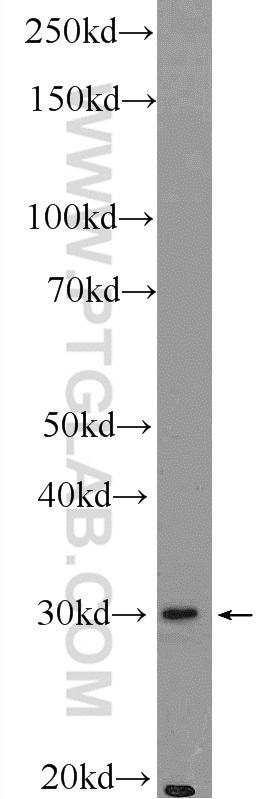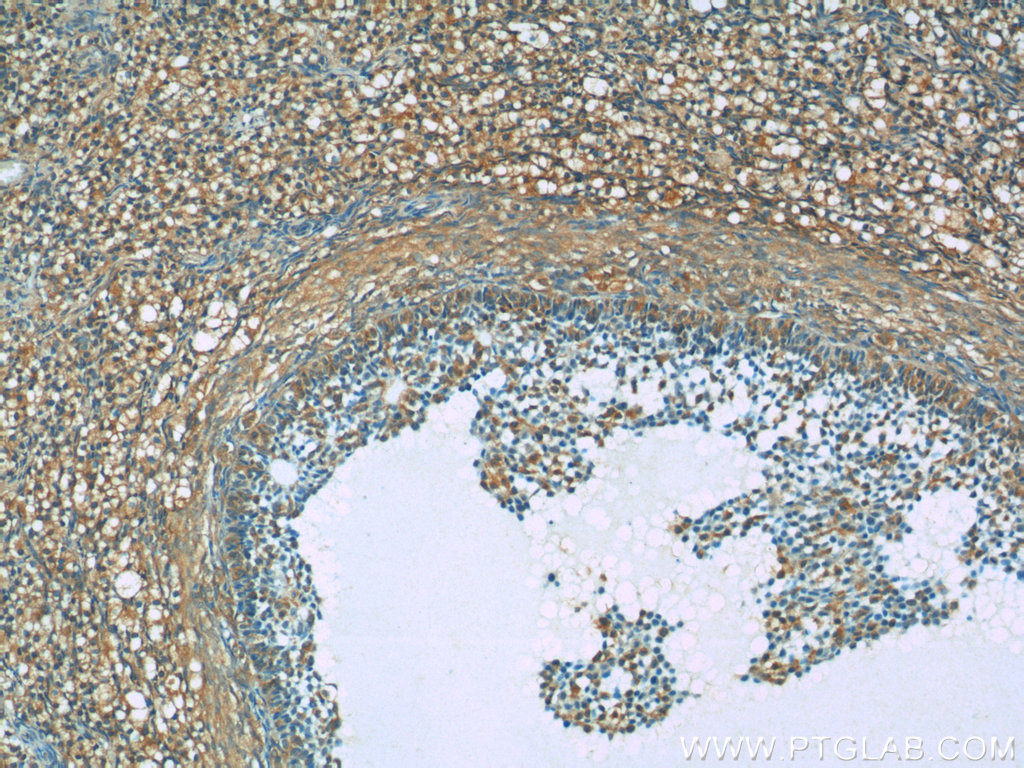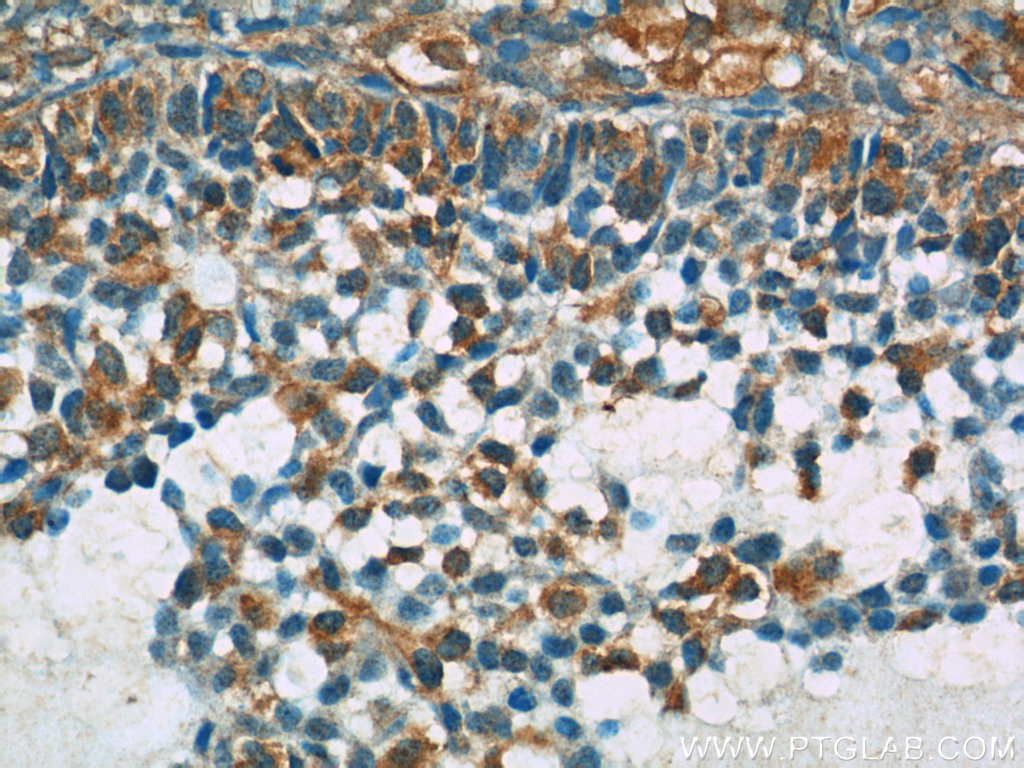验证数据展示
经过测试的应用
| Positive WB detected in | Raji cells |
| Positive IHC detected in | human ovary tissue Note: suggested antigen retrieval with TE buffer pH 9.0; (*) Alternatively, antigen retrieval may be performed with citrate buffer pH 6.0 |
推荐稀释比
| 应用 | 推荐稀释比 |
|---|---|
| Western Blot (WB) | WB : 1:500-1:2000 |
| Immunohistochemistry (IHC) | IHC : 1:20-1:200 |
| It is recommended that this reagent should be titrated in each testing system to obtain optimal results. | |
| Sample-dependent, Check data in validation data gallery. | |
产品信息
25432-1-AP targets BIVM in WB, IHC, ELISA applications and shows reactivity with human samples.
| 经测试应用 | WB, IHC, ELISA Application Description |
| 经测试反应性 | human |
| 免疫原 | BIVM fusion protein Ag22087 种属同源性预测 |
| 宿主/亚型 | Rabbit / IgG |
| 抗体类别 | Polyclonal |
| 产品类型 | Antibody |
| 全称 | basic, immunoglobulin-like variable motif containing |
| 别名 | BIVM |
| 计算分子量 | 503 aa, 57 kDa |
| 观测分子量 | 32 kDa |
| GenBank蛋白编号 | BC075084 |
| 基因名称 | BIVM |
| Gene ID (NCBI) | 54841 |
| RRID | AB_2880076 |
| 偶联类型 | Unconjugated |
| 形式 | Liquid |
| 纯化方式 | Antigen affinity purification |
| UNIPROT ID | Q86UB2 |
| 储存缓冲液 | PBS with 0.02% sodium azide and 50% glycerol , pH 7.3 |
| 储存条件 | Store at -20°C. Stable for one year after shipment. Aliquoting is unnecessary for -20oC storage. |
背景介绍
BIVM has been identified using an electronic search based on the conservation of short sequence motifs within the variable region of immunoglobulin (Ig) genes. It is tightly linked (41 bp) and in the opposite transcriptional orientation to MGC5302 (also known as KDEL1 and EP58) in human. BIVM has two isoforms with MW 57 kDa and 32 kDa.
实验方案
| Product Specific Protocols | |
|---|---|
| WB protocol for BIVM antibody 25432-1-AP | Download protocol |
| IHC protocol for BIVM antibody 25432-1-AP | Download protocol |
| Standard Protocols | |
|---|---|
| Click here to view our Standard Protocols |


